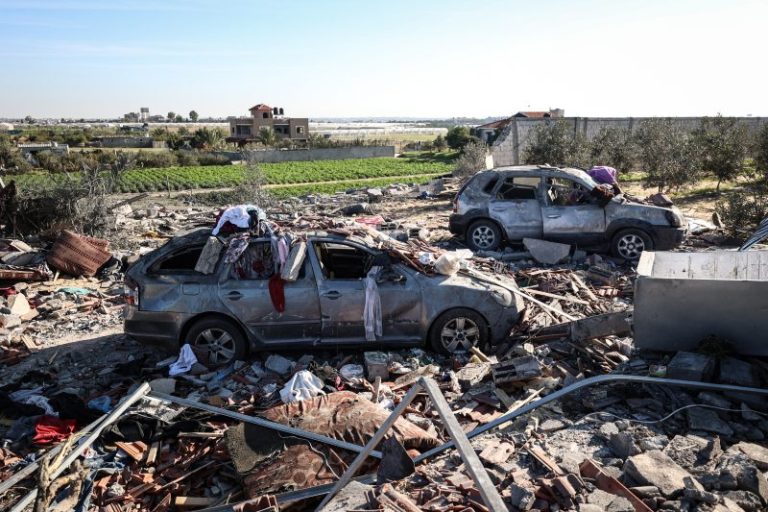Senators on Tuesday will vote on whether to require the Biden administration to look into potential human rights abuses perpetrated by Israel in its military campaign in Gaza.
Sen. Bernie Sanders (Vt.), an independent who caucuses with Democrats, is forcing the politically tricky vote using a mechanism in U.S. foreign assistance law that requires the State Department to look into human rights practices of nations receiving U.S. aid. If passed, the resolution would require the department to produce a report within 30 days about any potential abuses and how U.S. weapons have been used in Gaza.
The resolution would not alter U.S. aid to Israel, but it is still facing opposition from the Biden administration and many Democrats, who have raised concerns about the message the vote would send.
“We are trying to call attention to some unpleasant realities that I think a lot of people would prefer not to deal with,” Sanders said in an interview.
The vote comes at a sensitive time in the war, which began after Hamas fighters killed 1,200 Israelis in an Oct. 7 surprise attack. The Israeli counteroffensive has drawn international criticism in recent weeks as the United Nations has described devastating humanitarian conditions in Gaza, a high civilian death toll and far too little aid. More than 23,000 people have been killed in Gaza since Israel began its military operations, according to Palestinian officials. The Israeli government rejects the criticism, saying it tries to minimize civilian casualties as it seeks out Hamas fighters who often hide within civilian populations.
The issue has divided Democratic lawmakers, with some echoing the calls by many nations for a cease-fire while others support continued military action. Some recent polls suggest that the issue divides Democratic voters, as well. Most Republicans, however, have stood staunchly in their support for Israel.
Sanders, who is Jewish and spent time in Israel as a young man, has faced criticism from his progressive base for not calling for an immediate cease-fire. But he’s become one of the loudest voices in Congress calling for more scrutiny of Israel’s actions in Gaza, and he supports cutting off billions of dollars in U.S. military aid to the nation.
“Many Americans do not want to see our country complicit in a horrific humanitarian disaster which is causing so much suffering,” Sanders said.
The White House has said that it opposes the resolution and that a vote in favor of it could be interpreted as a rebuke of President Biden’s handling of the war. Biden has said that Israel has engaged in “indiscriminate bombing” and that the current government led by Benjamin Netanyahu has pursued a military strategy that has resulted in far too many civilian deaths. But Biden has also remained steadfast in his support of the nation, one of the United States’ closest allies, and his administration argues that Israel is changing its tactics in the war.
“We do not believe that this resolution is the right vehicle to address these issues. And we don’t think now is the right time,” National Security Council spokesman John Kirby said in a statement. “It’s unworkable, quite frankly. The Israelis have indicated they are preparing to transition their operations to a much lower intensity. And we believe that transition will be helpful both in terms of reducing civilian casualties, as well as increasing humanitarian assistance.”
When asked if they’d support the resolution, several Democratic senators said last week that they were still looking into it.
Sanders said some senators were concerned about the unprecedented nature of the vote, given that this particular mechanism in the Foreign Assistance Act has never been voted on before. He said a low vote tally Tuesday should not be interpreted as a lack of concern among Democrats about the war, particularly about the small amount of humanitarian aid that is reaching Palestinians.
“Do I think there is discomfort with that reality? I do,” he said. “But whether people are prepared to cast what for some may be a difficult vote politically we will see on Tuesday night.”

